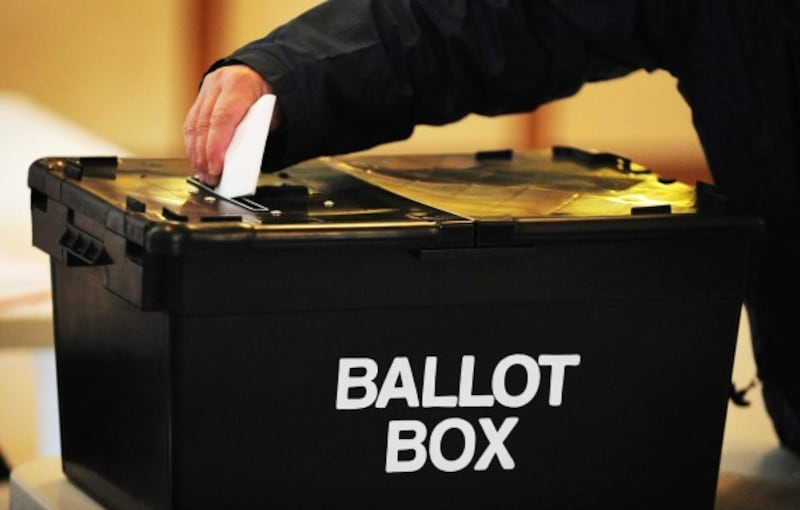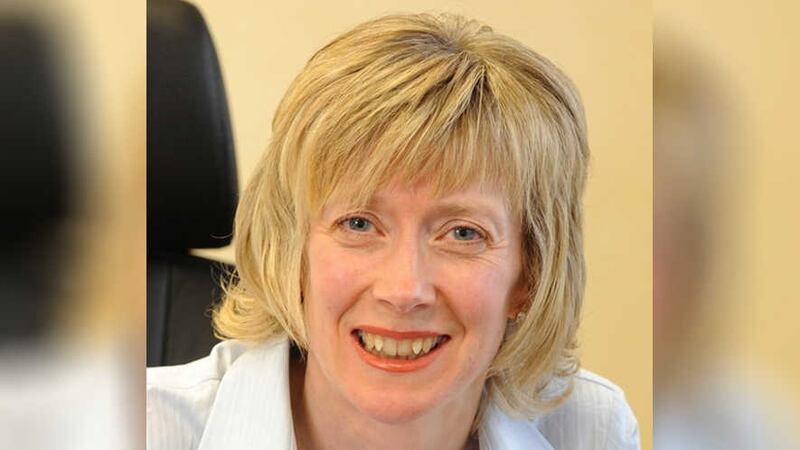A Dublin government led by Sinn Féin would deliver a “step change” in preparing for unification, with a border poll a possibility within the lifetime of the next Dáil, party leader Mary Lou McDonald has said.
Ms McDonald said if Sinn Féin secures power following the Republic’s next general election it would use its mandate to press the British government to clearly spell out the criteria for determining the threshold for triggering a vote on constitutional change.
She said one option her party would consider if in government would be the creation of a minister of state role with responsibility for driving unity preparations. The Sinn Féin leader also indicated that any citizens’ assembly examining what a united Ireland might look like would be designed to ensure unionist perspectives are fully heard.
In a wide-ranging interview with the PA news agency, the Dublin Central TD also signalled that, as taoiseach, she would have no issue attending commemorative events associated with the unionist tradition.
Pressed on whether it was a realistic proposition that a border poll could he held within the lifetime of the next government in Ireland, she replied: “It could be. But it would certainly require a level of diligence and work.
“One thing for sure is, it will only happen if you have a government that’s actually serious about the proposition and actually fully understands what it can mean for Ireland, and who is ambitious to create that space and those opportunities for our people.”
Ms McDonald said a new Irish government proactively advocating unity would not necessarily lead to a cooling of relations with Downing Street.
“That depends on who you talk to,” she said.
“I’m sure the Tories won’t be pleased. But then we’re not very pleased with the Tories. So, you know, that’s kind of a nil-all draw, isn’t it?

The Sinn Féin leader rejected the notion that being proactive in calling for unification may create difficulties when trying to find partners to agree a programme for government.
“When you look at any of the political parties, each of them, at least rhetorically, say that they are for reunification,” she said.
“There is a timing issue (Fianna Fail and Fine Gael do not believe it is the right time for a border poll) but I mean if in principle you agree (on Irish unity), and everybody who is a signatory to the Good Friday Agreement has accepted that the issue of partition is a matter that is democratically adjudicated by the people – that’s not controversial, that the method for a decision is referendum – so, yes, it’s about a question of timing, but it’s also a question of being prepared.
“I’m very clear in my own mind that it is only reasonable and fair for people to ask ‘well, in a united Ireland, do I have to go and pay to see my general practitioner?’ I think that’s a fair question. I think it’s fair and I think it’s only reasonable that we have answers to a number of those kind of core issues.”
Ms McDonald also reflected on how she would approach the role of taoiseach if she became Irish premier.
Pressed on whether, as taoiseach, she would continue to attend IRA commemorations that have in the past been criticised by Troubles victims, the Sinn Féin president said she would do all she could to chart a path that was ”balanced and respectful”.
“I actually think that that is not going to be a source of contention, for the simple reason that I will do everything within my power to be balanced and respectful,” she said.
“I am an Irish republican and I’m the leader of Sinn Féin. People know my political views.”


